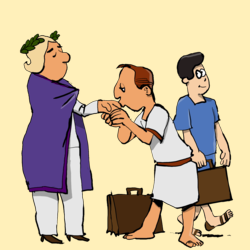 For many people living in poverty, the choices are grim: stay where you are, and see your life ebb away through hunger, illness and insecurity, with no obvious prospect of ever bettering yourself; or seek to become an economic refugee in some wealthier part of the world. Those who become economic refugees often risk everything, including all their money and their personal safety, in the hope of eventually finding a better life.
For many people living in poverty, the choices are grim: stay where you are, and see your life ebb away through hunger, illness and insecurity, with no obvious prospect of ever bettering yourself; or seek to become an economic refugee in some wealthier part of the world. Those who become economic refugees often risk everything, including all their money and their personal safety, in the hope of eventually finding a better life.
In Africa, there are plenty of black-market vendors of hope running people smuggling operations. The nearest wealthy country for many Africans is South Africa, and many people entrust their lives and their life’s savings to networks of human traffickers in the hope of finding a path through Africa to a new life of prosperity in the south. Human trafficking has become a multi-million dollar business, and those who become ensnared by the networks often end up being sexually exploited and subject to forced labour.
The Nairobi suburb of Eastleigh has become a centre of human trafficking. Refugees from Somalia, Eritrea, Ethiopia and Kenya start their journeys and pay most of their money there. They are sent via long and difficult routes to other countries, crossing borders in obscure places, and constantly being targeted for bribes by corrupt officials. When they reach their hoped-for destinations, they are usually unwelcome, and they are frequently imprisoned and then deported back to where they came from.




